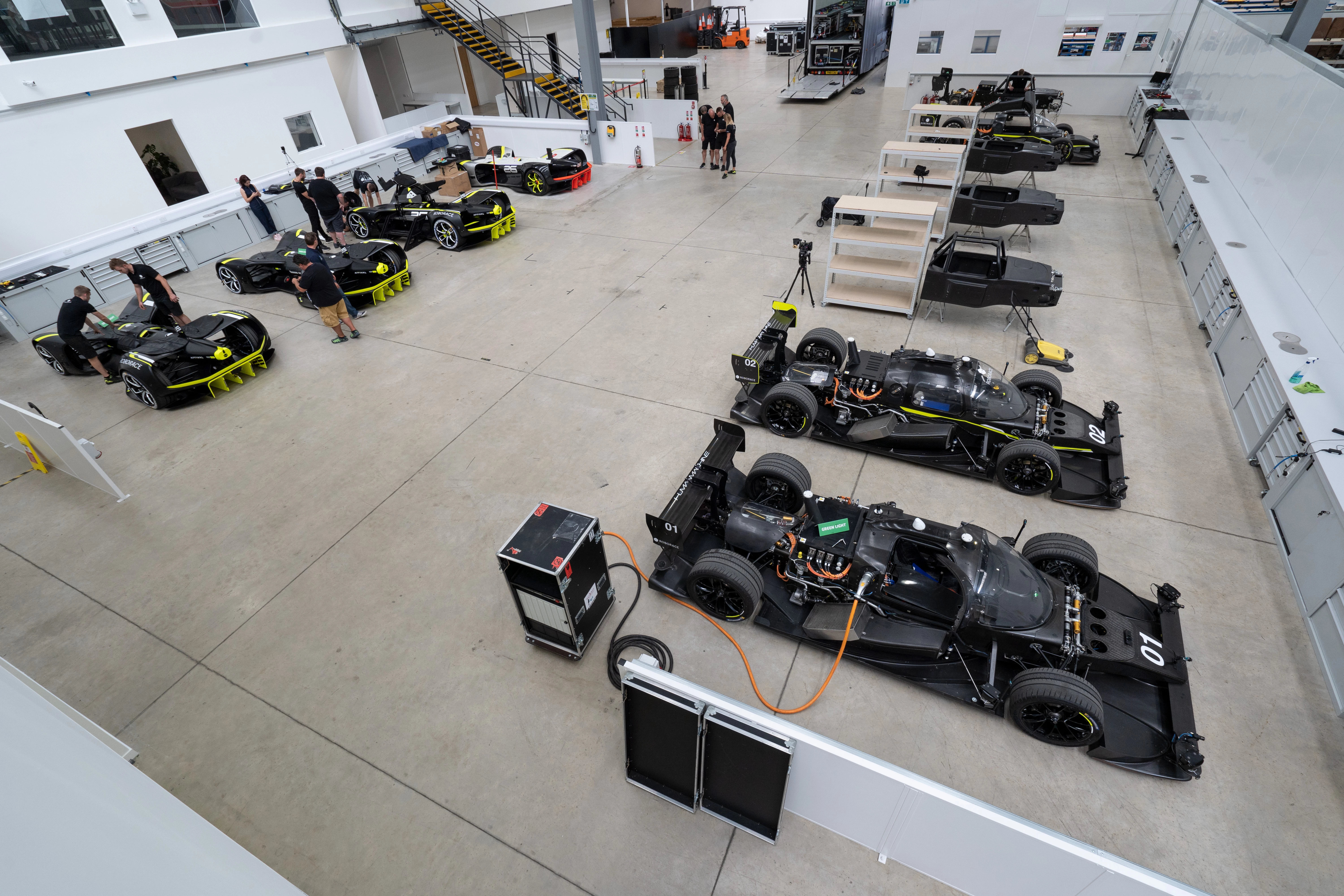
Partner Article
Racing to a safer future
Oxfordshire is best placed to be a Living Laboratory for real world testing of Connected and Autonomous Vehicles (CAV) rollout. By retaining the UK’s strong global position in Autonomous Vehicle development, revenue to the economy is expected to be at least £51bn by 2030, with 320,000 new jobs, 5,000 serious accidents avoided and 2,500 lives saved.
Imagine ten electric race cars on a track. Five charge clockwise around the circuit, the remainder surge off in the opposite direction. Halfway around they meet, but instead of crashing, they dodge each other by millimetres.
Such self-driving race cars are already being developed by world-leading mechanical and electronic engineers in Banbury, the heart of the UK’s ‘motorsport valley’, by a company called Roborace. More importantly, they have already been proven in public.
Two Roborace cars have participated in a support race to the FIA Formula E all-electric race series, while another has become the first autonomous car to run at the Goodwood Festival of Speed.
But Roborace doesn’t exist simply to provide spectacle – it fast-tracks the development of connected and autonomous technology for the road. ‘Roborace rests on three developmental pillars: electric, connected and autonomous technologies,’ explains chief strategy officer Bryn Balcombe.
The cars exude an eerie, almost alien-like sentient vibe. It’s as if they have been built in a galaxy far, far away – not 60 miles up the motorway from London. ‘They easily outpace average drivers, and will soon beat professional race drivers,’ explains Roborace CEO and former Formula E champion Lucas di Grassi. ‘There’s a physical limit to how fast the human eye can relay information to the brain, and the brain pass instructions to hands and feet. Computers are already capable of responding 200 times faster than a human.’
Roborace has already performed its first prototype competition format in Berlin earlier this year which saw two teams each consisting of one human and one AI driver competing against each another, with the human and machine as teammates. Similar challenges are planned for 2019, which Roborace refers to as Season Alpha. ‘To date we’ve run ten international challenges, the majority in city centres in partnership with the FIA Formula E Championship including; NYC, Montreal, Hong Kong, Buenos Aires, Berlin, Rome. We also completed the first ever autonomous run at the Goodwood Festival of Speed hillclimb in the English countryside. The software needs to adapt to each specific environment to make the most from the data streaming from all the different sensors.’ explains Bryn. ‘and that’s the aim of the series, to create challenges that accelerate software innovation and transfer technologies from motorsport to our roads.’
‘Perhaps we’ll come to think of AI Driver software developers as the next generation of race horse trainers. Days/weeks/years spent behinds the scenes that all become essential for that final race day performance.’ muses Bryn.
And imagine too such technology used on the road one day, where an autonomous, connected car’s ability to react hundreds of times faster than a driver, and execute millimetre-precise manoeuvres, could save human lives.
This was posted in Bdaily's Members' News section by Angus Frazer .
Enjoy the read? Get Bdaily delivered.
Sign up to receive our popular morning National email for free.








 How to make your growth strategy deliver in 2026
How to make your growth strategy deliver in 2026
 Powering a new wave of regional screen indies
Powering a new wave of regional screen indies
 A new year and a new outlook for property scene
A new year and a new outlook for property scene
 Zero per cent - but maximum brand exposure
Zero per cent - but maximum brand exposure
 We don’t talk about money stress enough
We don’t talk about money stress enough
 A year of resilience, growth and collaboration
A year of resilience, growth and collaboration
 Apprenticeships: Lower standards risk safety
Apprenticeships: Lower standards risk safety
 Keeping it reel: Creating video in an authenticity era
Keeping it reel: Creating video in an authenticity era
 Budget: Creating a more vibrant market economy
Budget: Creating a more vibrant market economy
 Celebrating excellence and community support
Celebrating excellence and community support
 The value of nurturing homegrown innovation
The value of nurturing homegrown innovation
 A dynamic, fair and innovative economy
A dynamic, fair and innovative economy